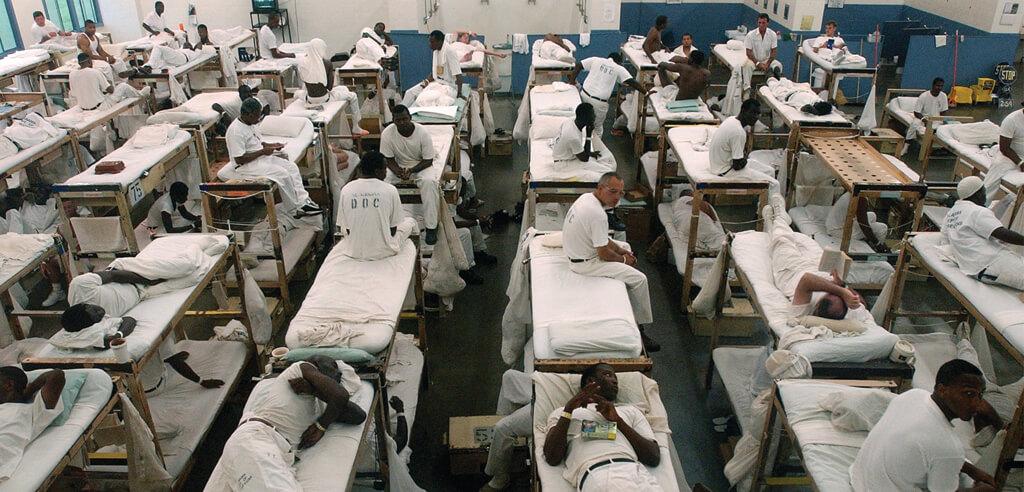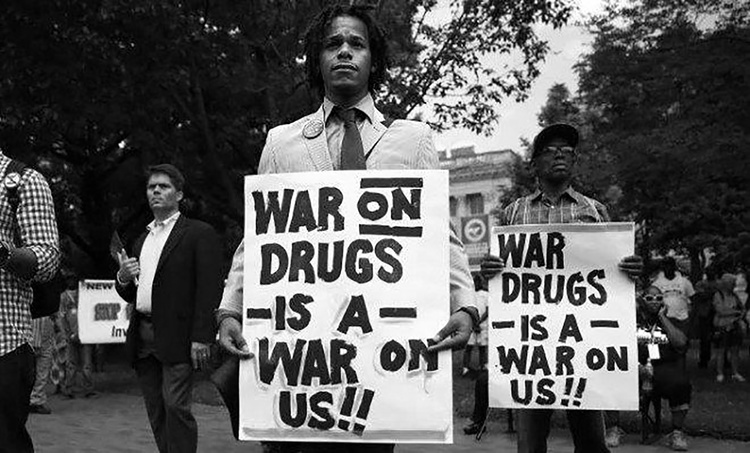U.S. War on Drugs
Background
Drugs such as marijuana, opium, cocaine, and other psychedelics have been used for centuries for medical and spiritual purposes in Ancient Native cultures. They were a form of expression, joy, and even health for early Asian, Latino, and African American groups in history. However, in the late 1960s, President Richard Nixon’s introduction of the War on Drugs was enforced as a supposed method to eliminate the increasing drug abuse within the United States. Although Nixon claimed this as a means of bettering our "degrading" American society, we have to question whether the true intention of this drug war was to actually cease the illegal use of narcotics in the United States.
The U.S. government, under Nixon’s Leadership, went further in criminalizing specifically minority groups, particularly African Americans, Hispanics, and hippies when caught for narcotic usage or distribution. According to reports from the US Sentencing Commission, although African Americans only used drugs 1.5% more than White Americans, almost 600 more African Americans were arrested per every 100,000 residents of each race (McDermott, 2016). Today, we consider countries such as China, Russia, Iran, and Cuba to be more autocratic and repressive than our freedom-preaching American Government, yet we imprison more people than any nation in the world. Regardless of his propaganda, Nixon influenced the public to associate the narcotic problem with these minority communities, allowing the government to disrupt, criminalize, and marginalize these minority neighborhoods
21st Century
However, this problem is not a short-lived one during Nixon’s reign. Its results have ultimately contributed to the institutionalized racism of black people today. In 2014, there were 1.5 million arrests related to drugs; 86% of them were African American and Latino (Drug Policy Alliance). Almost fifty years later, the rates of drug usage in American teens and young adults have stayed basically the same. Even after the legalization of marijuana in so many states, there are regulations as to who can take part in this money-making economy. Though we see it booming, previous felons caught selling or handling narcotics years ago are still prevented from participating; a majority of these people include young African Americans who had sold drugs for a living, and were more easily imprisoned than whites doing the same thing. With this, we can conclude that the War on Drugs completed its hidden goal of criminalizing young African American and Latino individuals rather than truly solving the United States’ drug problem.
Works Cited
“A Brief History of the Drug War.” Drug Policy Alliance, www.drugpolicy.org/issues/brief-history-drug-war.
Berger, Dan. “Mass Incarceration And Its Mystification: A Review Of ‘The 13th.’” Public Books, 15 Aug. 2018, www.publicbooks.org/mass-incarceration-and-its-mystification-a-review-of-the-13th/.
“Cracks in the System: 20 Years of the Unjust Federal Crack Cocaine Law.” American Civil Liberties Union, Aclu, www.aclu.org/other/cracks-system-20-years-unjust-federal-crack-cocaine-law.
“Glare on Nixon's Motivations: The Drug War Was (And Still Is!) A Racist Policy Tool to Disrupt and Neutralize Black Communities.” Drug Policy Alliance, www.drugpolicy.org/blog/glare-nixons-motivations-drug-war-was-and-still-racist-policy-tool-disrupt-and-neutralize-black.
Lopez. “Nixon Official: Real Reason for the Drug War Was to Criminalize Black People and Hippies.” Vox.com, Vox Media, 23 Mar. 2016, www.vox.com/2016/3/22/11278760/war-on-drugs-racism-nixon.
Mann, Brian. “The Drug Laws That Changed How We Punish.” NPR, NPR, 14 Feb. 2013, www.npr.org/2013/02/14/171822608/the-drug-laws-that-changed-how-we-punish.
McDermott, Maeve. “Jay Z Thinks 'The War on Drugs Is an Epic Fail'.” USA Today, Gannett Satellite Information Network, 15 Sept. 2016, www.usatoday.com/story/life/entertainthis/2016/09/15/jay-z-video-new-york-times-war-on-drugs-epic-fail/90416604/.





